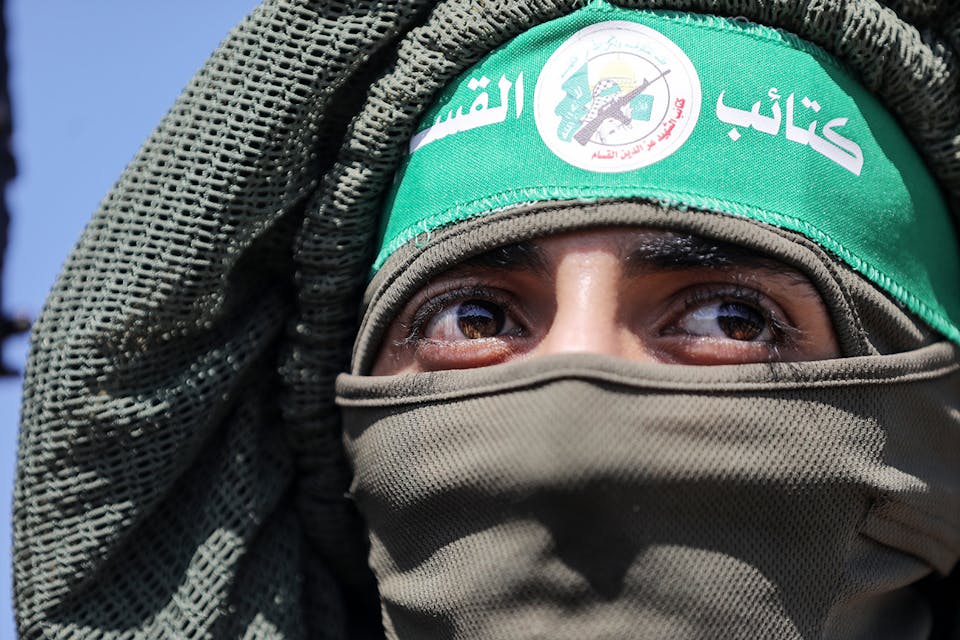
October 10, 2023
Hamas’s Messianic Violence
Why Hamas frames the Israel-Palestinian conflict with the imagery of divine justice and cosmic warfare, and why it appeals to so many in the West.
The videos released by Hamas’s media wing showcasing their murderous acts from this past weekend bear a visible slogan watermarked on their top right corners reading “Revolution of those who resist.” Last month, in my essay for Mosaic, I attempted to place the evolution of the concept of the Nakba and the Palestinian cause within the history of Arab and Muslim revolutionary thought. While that essay was focused on the realm of ideas and mostly on the previous decades, the events now unfolding force us to see the horrifying application of the ideas of the Palestinian revolution on our phone, computer, and television screens.
Two things were immediately noticeable: the attempts of Hamas to portray its massacres as the beginning of the Islamic redemptive battle for Palestine and the quick, enthusiastic response by many pro-Palestinian activists, both in the Middle East and the West, religious and secular. From the comfort of his office in Qatar, Hamas’s leader, Ismail Haniyeh, gave a fifteen-minute speech—aired on Al Jazeera—in which he praised the actions of the terrorists and asserted, “This battle is not only for the Palestinian people or only for Gaza. Gaza is merely the lever of resistance, . . . but since this is about al-Aqsa mosque, it is the battle of the [Islamic] nation. I call upon all the nation’s children, no matter where they are, to join the fight . . . of the men who are writing history with their blood and their rifles.”
Haniyeh managed to pack into this short speech every moral and political slogan and symbol the Arab and Muslim masses generally associate with the Palestinian cause, drawing on the well-established tradition of legitimizing all forms of violence against Israel. Haniyeh sees Palestine not as a concrete place or a mere geopolitical issue, but as part and parcel of a collective moral identity, deeply ingrained in the minds of many of his coreligionists. As he and his Iranian backers know well, the slogan “Free Palestine!” stirs a fervor that bypasses rational discourse. Because of this emotional resonance, discussions that begin with the plight of the Palestinians often inexorably lead not just to expressions of vicious hatred of Israel, but to straightforward anti-Semitism—especially within Islamist circles.
Responses to October ’s Essay
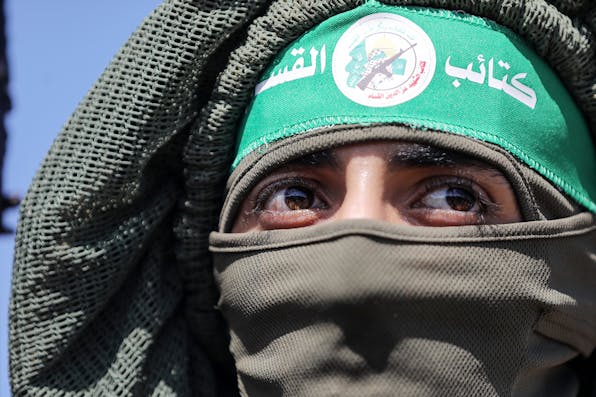
October 2023
Hamas’s Messianic Violence
By Hussein Aboubakr Mansour
October 2023
The Whole Middle East Is Counting on Israel to Destroy Hamas
By Evelyn Gordon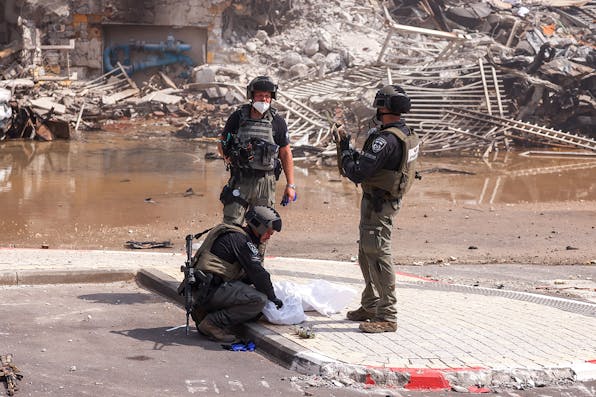
October 2023
“OK, So I’ll Tell You What Happened This Saturday from My Perspective.”
By Namer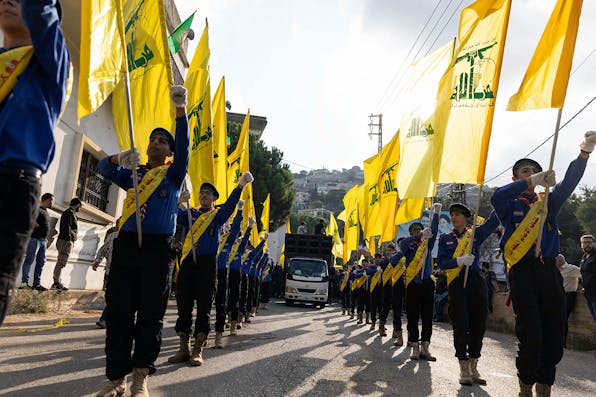
October 2023
Israel’s Outside-the-Box Options
By Aaron MacLean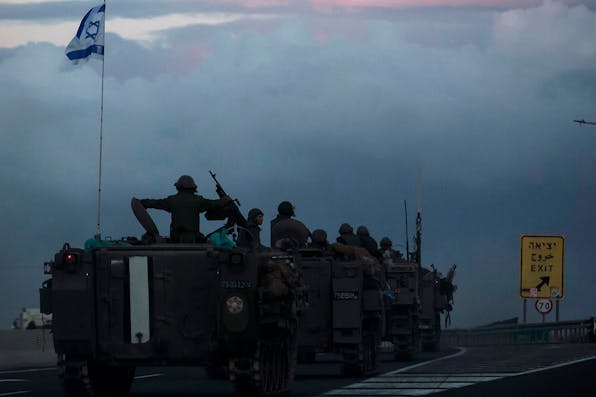
October 2023
The Cost of Strong American Support at the Start of the War
By Jonathan Schachter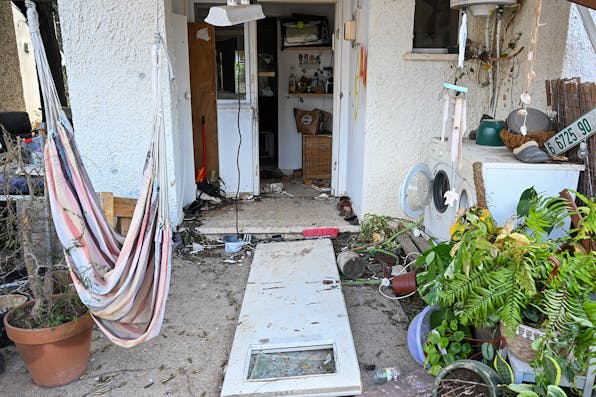
October 2023
The Death of Evidence-Based Two-Statism
By Rafi DeMogge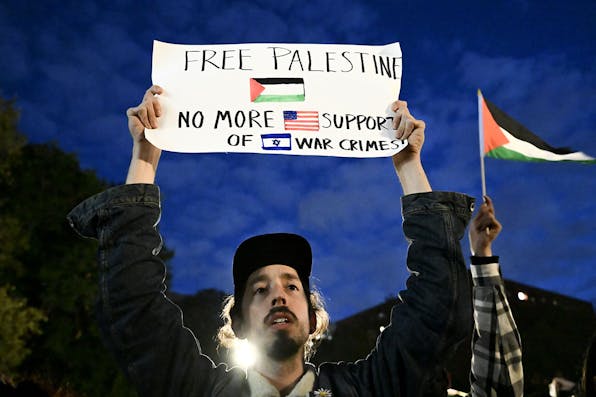
October 2023
Israel’s Existential Struggle Is Also the West’s
By Arthur Herman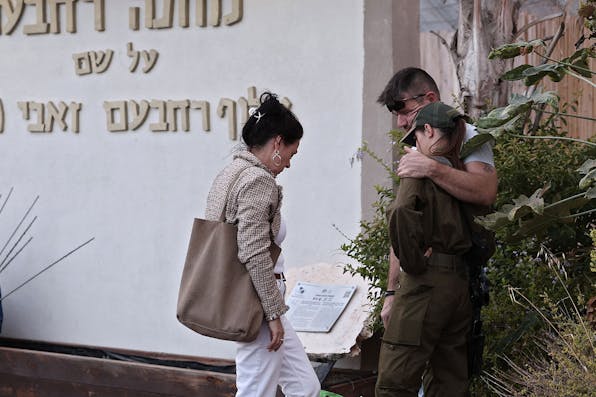
October 2023
“Now We Act as If Everyone We Encounter Might Be Grieving”
By Sarah Rindner
October 2023
America Can No Longer Wait to Put Its Own House in Order
By Stephen Peter Rosen
October 2023
The Social-Media War
By Arieh Kovler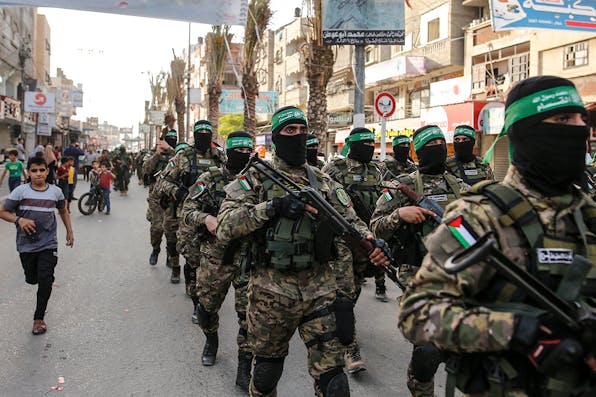
October 2023
The Extremist’s Gambit Helps Explain Why Hamas Attacked Now
By Tanner Greer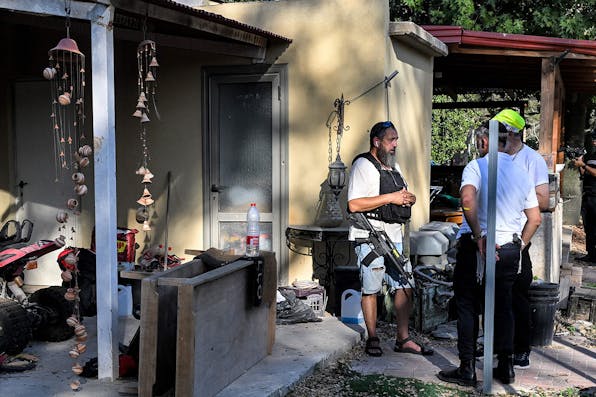
October 2023
Left, Right, Haredi: Three Great Awakenings of the Gaza War
By Yehoshua Pfeffer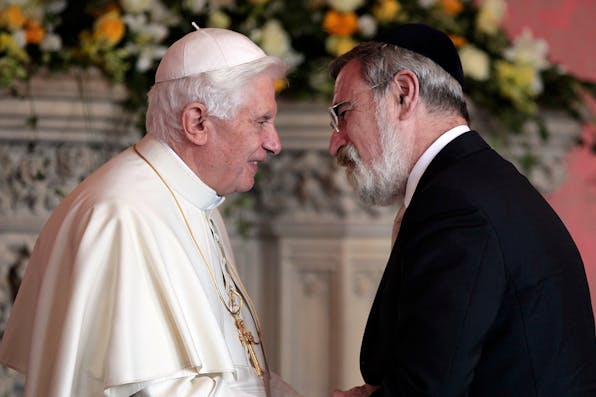
October 2023
“Today the Jews. Tomorrow You.”
By Andrew Doran